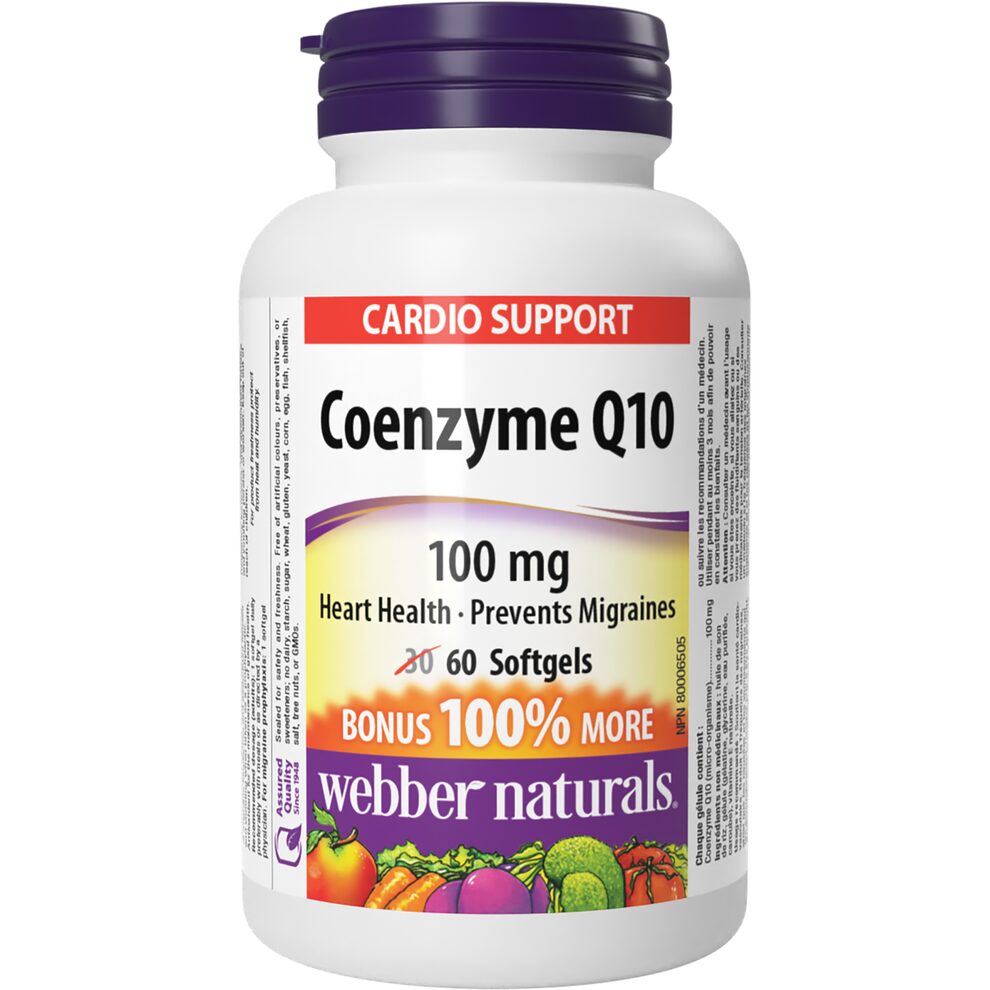Coenzyme Q10 (CoQ10): Health Benefits
What is Coenzyme Q10?
Coenzyme Q10 (CoQ10), also known as ubiquinone, is a naturally occurring compound found in the body. It plays a crucial role in the production of energy in the form of adenosine triphosphate (ATP) in the mitochondria, the energy-producing units of cells. CoQ10 also functions as an antioxidant, helping to protect cells from damage caused by free radicals.
CoQ10 is found in small amounts in a variety of foods, particularly in organ meats such as liver, as well as in whole grains, nuts, and oils. The body can also synthesize CoQ10, although the production may decrease with age or due to certain medical conditions.
Supplements of CoQ10 are available and are sometimes used to help manage various conditions, such as heart disease, high blood pressure, and mitochondrial disorders. CoQ10 is also sometimes used as a dietary supplement to support overall health and well-being, although more research is needed to fully understand its potential benefits and uses.
What are the health benefits of CoQ10?
Coenzyme Q10 (CoQ10) is a popular dietary supplement that is often touted for its potential health benefits. Some of the purported health benefits of CoQ10 include:
- Heart health: CoQ10 is believed to support heart health by helping to improve energy production in the heart muscle, reduce oxidative stress, and improve blood flow. Some studies suggest that CoQ10 supplementation may help reduce the risk of heart disease and improve symptoms in people with heart failure.
- Antioxidant properties: CoQ10 acts as a powerful antioxidant, helping to neutralize free radicals and protect cells from damage. This antioxidant activity is thought to contribute to its potential benefits for heart health and overall well-being.
- Migraine prevention: Some studies suggest that CoQ10 supplementation may help reduce the frequency and severity of migraines, although more research is needed to confirm these effects.
- Skin health: CoQ10 is sometimes used in skincare products for its antioxidant properties, which may help protect the skin from damage caused by UV radiation and other environmental factors.
- Exercise performance: Some research suggests that CoQ10 supplementation may improve exercise performance by increasing energy production and reducing oxidative stress, although results are mixed.
- Neurological health: CoQ10 is being studied for its potential benefits in neurodegenerative diseases such as Parkinson’s disease and Alzheimer’s disease, although more research is needed to understand its effects.
It’s important to note that while CoQ10 shows promise for a variety of health benefits, more research is needed to fully understand its effects and determine the optimal dosage and use. As with any supplement, it’s best to consult with a healthcare provider before starting CoQ10 supplementation, especially if you have any underlying health conditions or are taking medications.
What are the health risks of CoQ10?
Coenzyme Q10 (CoQ10) is generally considered safe for most adults when taken orally or applied to the skin appropriately. However, there are some potential side effects and risks associated with its use:
- Gastrointestinal issues: Some people may experience mild side effects such as stomach upset, loss of appetite, nausea, vomiting, or diarrhea.
- Allergic reactions: In rare cases, CoQ10 supplementation can cause allergic skin rashes in some individuals.
- Blood sugar: CoQ10 might lower blood sugar levels, so people with diabetes should monitor their blood sugar levels closely when taking CoQ10 supplements.
- Blood pressure: CoQ10 might lower blood pressure, so it should be used with caution in people who already have low blood pressure or are taking medications for high blood pressure.
- Interactions with medications: CoQ10 can interact with certain medications, including blood thinners (anticoagulants), some chemotherapy drugs, and medications for high blood pressure. It’s important to consult with a healthcare provider before starting CoQ10 supplementation, especially if you are taking any medications.
- Pregnancy and breastfeeding: There is not enough reliable information about the safety of using CoQ10 during pregnancy or breastfeeding. It’s best to avoid using it during these times unless specifically recommended by a healthcare provider.
As with any supplement, it’s important to talk to a healthcare provider before starting CoQ10, especially if you have any underlying health conditions or are taking medications. They can provide personalized advice based on your individual health needs.




